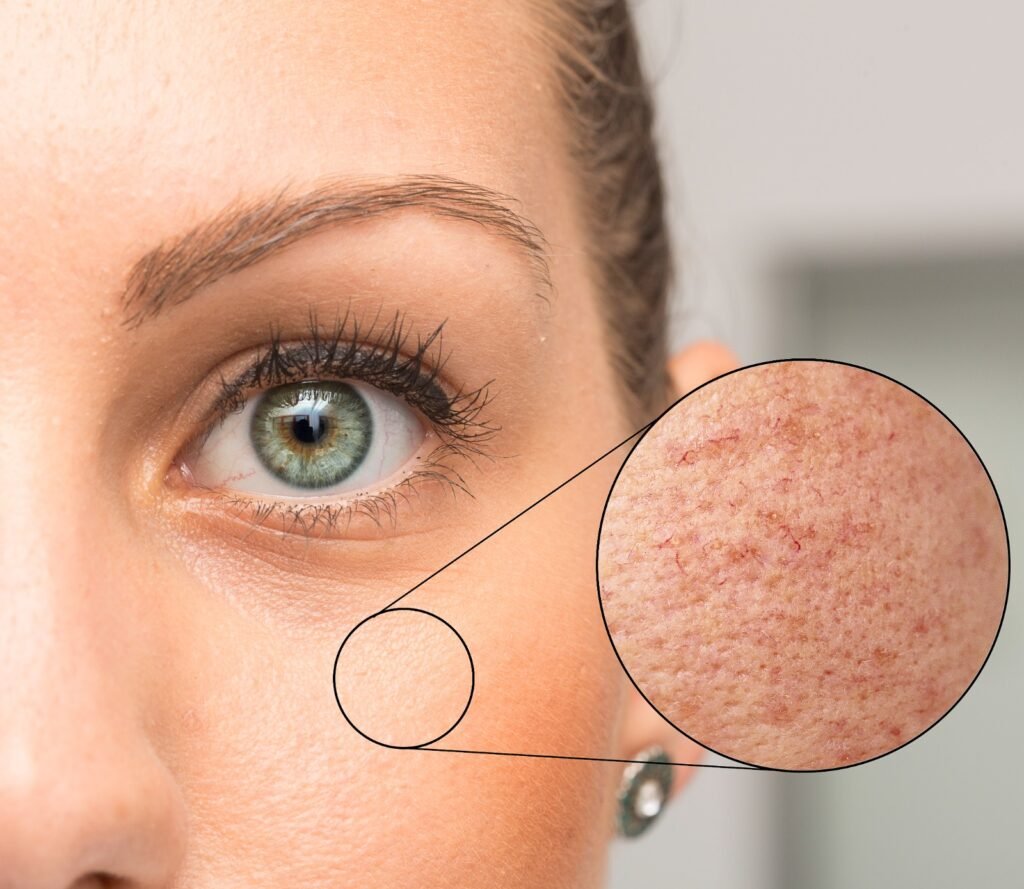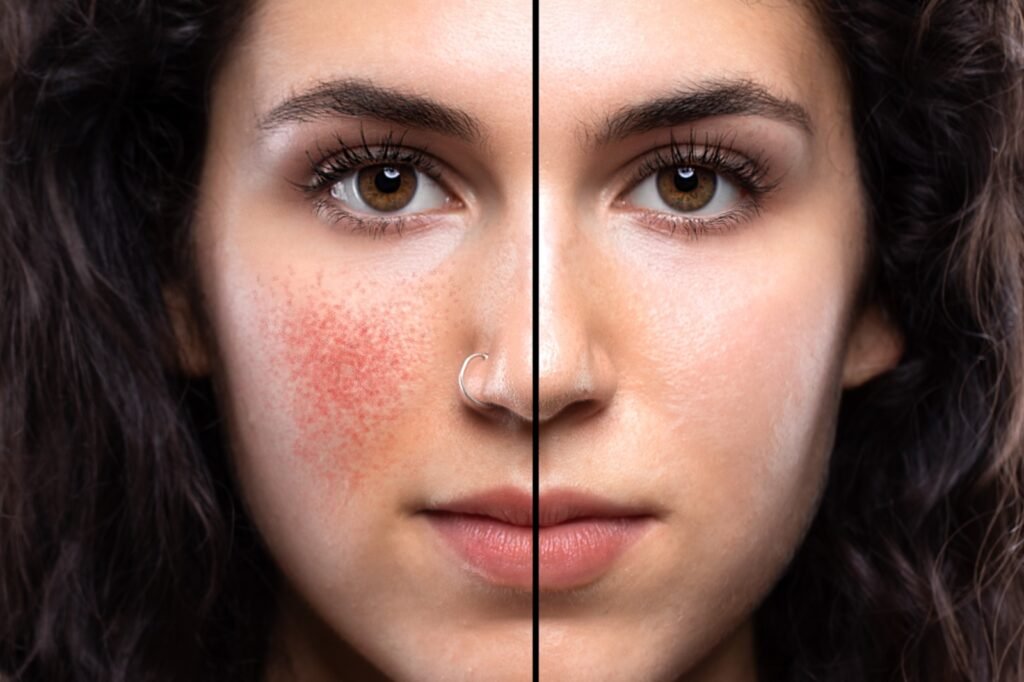Hyperpigmentation Treatment: Understanding, Causes, and Solutions
Introduction:
Hyperpigmentation is a common skin condition that occurs when patches of skin become darker in color than the surrounding area. This discoloration happens due to an excess production of melanin, the pigment responsible for skin color. While hyperpigmentation is generally harmless, it can be a source of concern for many individuals, impacting their self-esteem and confidence. Fortunately, there are various hyperpigmentation treatments available to address this issue and restore an even skin tone.
Understanding Hyperpigmentation:
To effectively treat hyperpigmentation, it's crucial to understand its causes and types. There are several factors that can contribute to the development of hyperpigmentation, including:
- Sun Exposure: Overexposure to the sun's ultraviolet (UV) rays can stimulate the production of melanin, leading to sunspots or solar lentigines.
- Hormonal Changes: Fluctuations in hormone levels, such as those experienced during pregnancy or while taking oral contraceptives, can trigger melasma, a type of hyperpigmentation commonly known as "pregnancy mask."
- Inflammation: Skin inflammation caused by conditions like acne, eczema, or psoriasis can result in post-inflammatory hyperpigmentation (PIH).
- Aging: As we age, our skin becomes more susceptible to hyperpigmentation due to a decrease in cell turnover and exposure to environmental factors over time.

Types of Hyperpigmentation:
Hyperpigmentation can manifest in various forms, each requiring a tailored approach to treatment. Some common types of hyperpigmentation include:
- Sunspots: Also known as age spots or liver spots, sunspots are darkened patches of skin that develop as a result of sun exposure.
- Melasma: Characterized by brown or grayish patches, melasma typically occurs on the face and is associated with hormonal fluctuations.
- Post-Inflammatory Hyperpigmentation (PIH): PIH develops as a result of skin inflammation or injury, such as acne lesions or cuts, and appears as dark spots or patches after the healing process.
- Freckles: Freckles are small, flat spots that develop as a result of genetics and sun exposure, containing a higher concentration of melanin.

Hyperpigmentation Treatment Options:
Fortunately, advancements in dermatology have led to a wide range of hyperpigmentation treatment options that can effectively lighten dark spots and restore an even skin tone. Some common hyperpigmentation treatments include:
- Topical Treatments:
- Hydroquinone: A topical medication that inhibits melanin production, hydroquinone is a common ingredient in skin-lightening creams and serums.
- Retinoids: Derived from vitamin A, retinoids promote cell turnover and help fade dark spots over time.
- Vitamin C: Known for its antioxidant properties, vitamin C can brighten the skin and reduce the appearance of hyperpigmentation.
- Kojic Acid: Extracted from certain fungi, kojic acid inhibits melanin production and is often used in conjunction with other skin-lightening agents.
- Chemical Peels:
Chemical peels involve the application of a chemical solution to the skin, which exfoliates the outer layer and promotes the growth of new, evenly pigmented skin cells. Different types of chemical peels, such as glycolic acid peels or trichloroacetic acid (TCA) peels, can be customized based on the severity of hyperpigmentation.
- Laser Therapy:
Laser therapy utilizes concentrated beams of light to target and break down melanin deposits in the skin. This non-invasive procedure can effectively lighten dark spots and improve overall skin tone, with minimal downtime.
- Microneedling:
Microneedling, also known as collagen induction therapy, involves using a device with fine needles to create tiny punctures in the skin. This process stimulates collagen production and allows for better penetration of topical treatments, leading to improved skin texture and reduced hyperpigmentation.
- Prescription Medications:
In cases of severe or resistant hyperpigmentation, dermatologists may prescribe medications such as corticosteroids or oral tranexamic acid to help regulate melanin production and reduce pigmentation.
Combination Therapies:
In many cases, a combination of hyperpigmentation treatments may be recommended to achieve optimal results. For example, a dermatologist may suggest combining topical treatments with laser therapy or chemical peels for enhanced efficacy.

Hyperpigmentation Prevention:
While there are numerous treatment options available for hyperpigmentation, prevention remains key to maintaining a clear and even complexion. Some tips for preventing hyperpigmentation include:
- Use sunscreen daily: Applying a broad-spectrum sunscreen with SPF 30 or higher can protect your skin from the harmful effects of UV rays and prevent sun-induced hyperpigmentation.
- Avoid excessive sun exposure: Limit your time in the sun, especially during peak hours when UV radiation is strongest. Wear protective clothing, such as hats and sunglasses, and seek shade whenever possible.
- Practice gentle skincare: Avoid harsh skincare products or treatments that can irritate the skin and lead to inflammation or PIH. Instead, opt for gentle cleansers and moisturizers tailored to your skin type.
- Address hormonal imbalances: If you experience hormonal fluctuations that contribute to hyperpigmentation, consult with a healthcare professional to explore options for hormone regulation.
Conclusion:
Hyperpigmentation is a common skin concern that can affect individuals of all skin types and ages. Fortunately, there are numerous hyperpigmentation treatment options available, ranging from topical creams to laser therapy, to help lighten dark spots and restore an even skin tone. By understanding the causes and types of hyperpigmentation and adopting preventive measures, you can effectively manage this condition and achieve a clearer, more radiant complexion. If you're struggling with hyperpigmentation, consult with a dermatologist to determine the best treatment plan for your specific needs and concerns. Remember, with patience and consistency, achieving brighter, more uniform skin is within reach.



Comments
Post a Comment